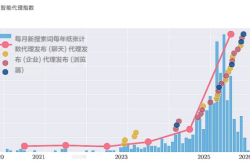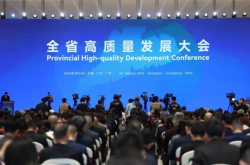AI mobile phone era, witness the coming "vivo moment"
![]() 10/12 2024
10/12 2024
![]() 650
650
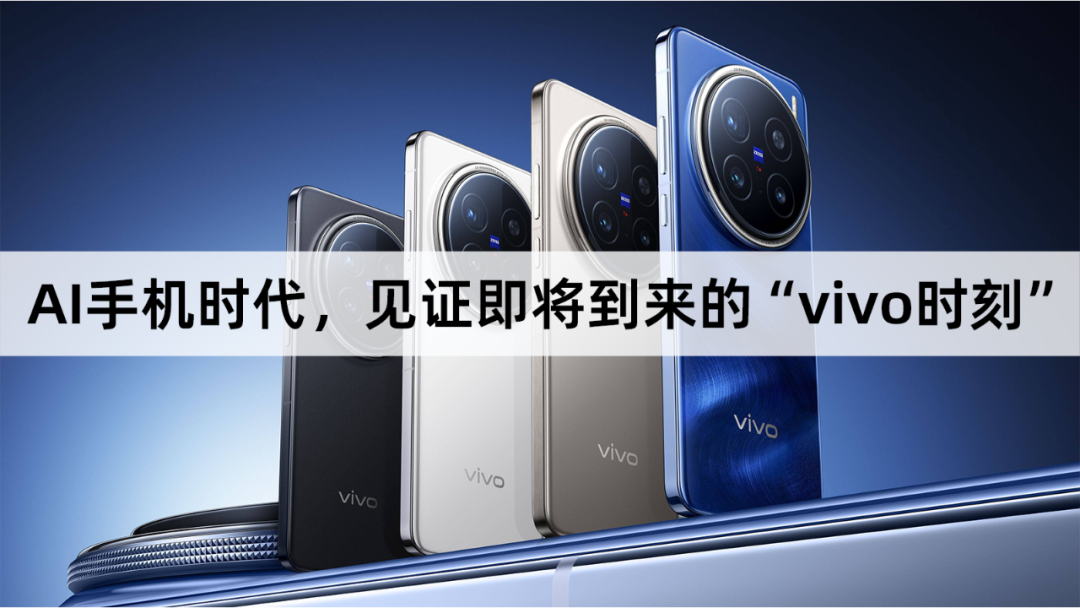
Every innovation in the way of interaction in the field of communication equipment means a reshuffle of players. Nokia's extensive use of 2G technology enabled mobile phones to send and receive text messages and even access the Internet, replacing the dominant position of "big brother"; Apple applied multi-touch technology to mobile phones, setting off a wave of the smartphone era, making Nokia a thing of the past.
Of course, the disruption of interaction mode is not a necessary condition for change, at least with strong technical support and high-dimensional thinking about technology.
Thirty years east of the river, thirty years west of the river. In the era of AI mobile phones, who will dominate?
The Gulfstream Economic Review believes that vivo will become a powerful disrupter with its unique thinking and user-oriented technological innovation.
01 Find a breakthrough
AI's impact on the mobile phone industry is disruptive. Sundar Pichai, CEO of Google, once said that we are moving from a "Mobile First" world to an "AI First" world. AI will redefine the way users interact with devices.
However, integrating AI with mobile phones is not an easy task. Sundar Pichai also said that getting AI to run quickly, reliably, and energy-efficiently on mobile devices is still a significant challenge.
Beyond technical challenges, consumers are also reluctant to pay for new technologies. New technologies often fail to attract consumers to upgrade, and may even be ignored due to pricing issues.
The key to breakthrough lies in the transformation of interaction mode. Remember back when the iPhone pioneered the use of multi-touch capacitive screens on a large scale, making fingernail pressing a thing of the past and bringing more natural and seamless interaction methods such as finger touch and pinch-to-zoom. At the same time, Apple nurtured a flourishing software ecosystem, giving birth to the hit application Fruit Ninja, which relied on multi-touch technology, and cementing the iPhone's dominance in the market.
Currently, AI for smartphones mostly seems to be an add-on, such as organizing files and providing writing ideas, making it difficult to influence consumer decisions.
A report on consumer AI preferences for smartphones released by Canalys earlier this year showed that consumer interest in AI features on smartphones was not particularly high, with only 25% of consumers expressing a high level of interest, while over 70% showed little interest.
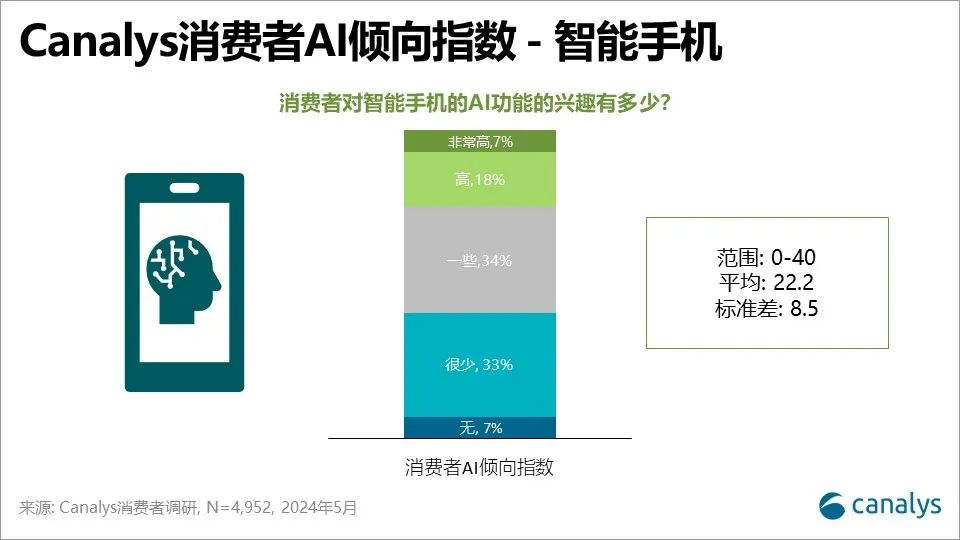
Recently, however, vivo, known for its modest, low-key, and pragmatic approach, is pulling out all the stops, seemingly with a disruptive flavor:
vivo's latest large model technology supports users to input content with the most natural fingertip selection or drag-and-drop methods, and obtain rapid search knowledge matching and intent recognition.
For example, to go to a location provided by a WeChat friend, the typical operation is to copy the address, exit WeChat, open the map, paste the address, and start navigation. With vivo's latest Blue Heart large model matrix support, users can simply select the location with their fingers, and the phone will recognize the user's navigation intent and automatically open the map to start navigation, truly realizing a transformation in interaction mode.
02 Build a big framework
There are two issues to note here:
There is still a long way to go before AI and mobile phones can be fully integrated, and the transformation of interaction mode is only the first step; this transformation is supported by numerous technological innovations and is hard-won.
Taking vivo as an example, on October 10, the "One Heart, One Journey" 2024 vivo Developer Conference unveiled a new AI strategy - Blue Heart Intelligence, and brought the latest achievements of a comprehensively upgraded self-developed Blue Heart large model matrix, OriginOS 5, Blue River operating system 2, and more.
Blue Heart Intelligence is personal intelligence that deeply integrates large model technology with mobile operating systems to continuously build more natural and intuitive interactions for users, bringing a smarter and warmer experience.
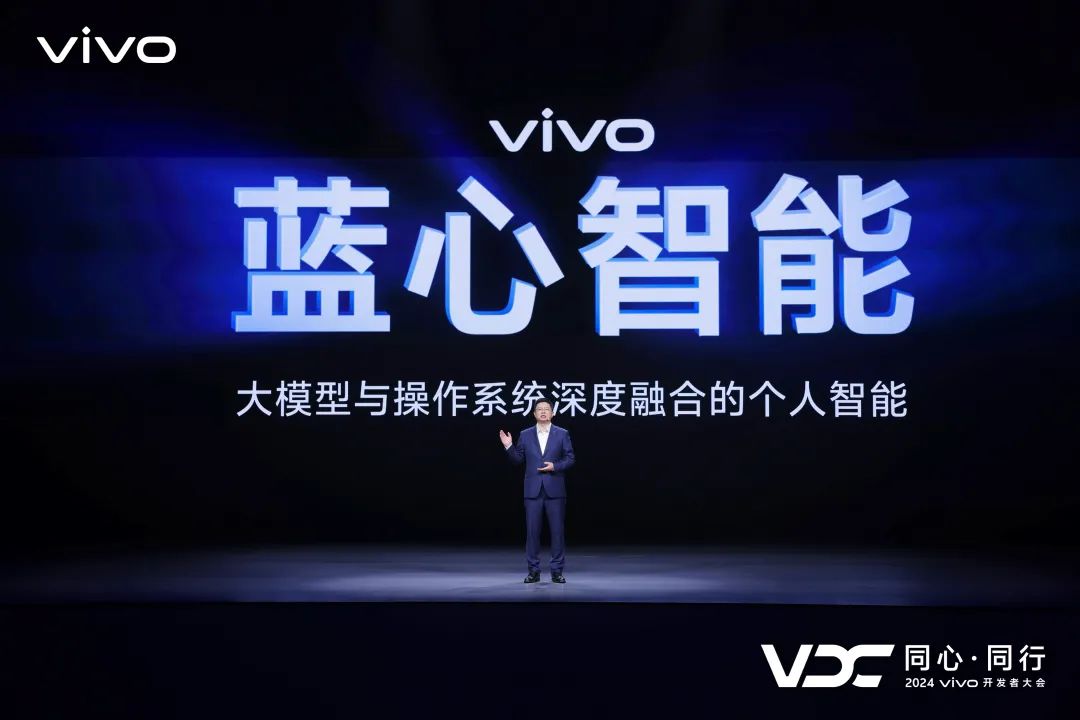
Based on this, vivo has its own unique definition of AI mobile phones:
First, we must reconstruct the interaction experience between humans and devices to make it more natural and intuitive. The most typical examples, in addition to selection and drag-and-drop, include support for multi-language translation and more emotional human-computer natural dialogue.
vivo's latest upgraded language large model can not only understand various accents such as Cantonese, Mandarin with a Northeast accent, Sichuanese, and even Miao language, but also replicate anyone's voice in 30 seconds, thus opening up possibilities for "screenless" or "less screen" interaction, seamless cross-device and scenario voice control, and even for emotional computing and deeper levels of interaction.
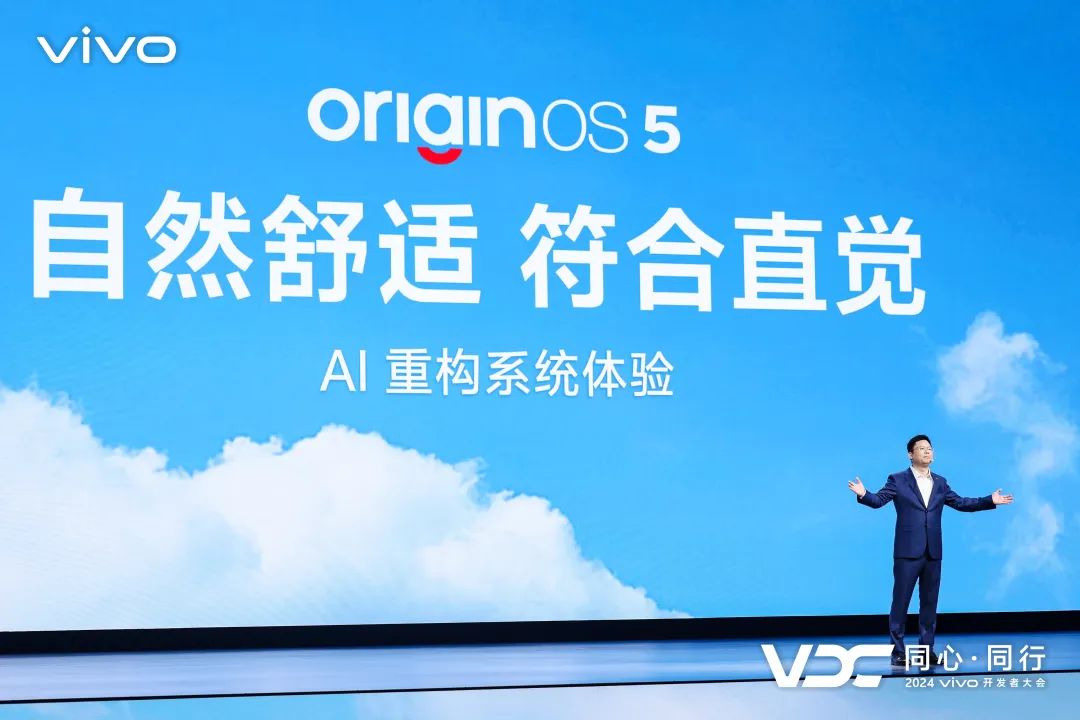
It is reported that vivo's language large model is mainly built around four capabilities: ultra-human voice tone, voice replication, voice translation, and free speaking in dialects. It possesses cloud capabilities of the hundred-billion-level Blue Heart large model, with a focus on optimizing intent understanding and distribution, as well as task planning capabilities. Compared to 2023, its overall capabilities have been improved by 30%, and it continues to lead the domestic first tier on the CMMLU and SuperCLUE rankings.
Second, we must reconstruct the service experience between humans and the digital world to make intelligence more personalized.
First, rely on AI technology to comprehensively upgrade the basic functions of mobile phones, refreshing 15 essential functions such as input method, phone, notes, and scanning, and building a platform-based AI public capability.
Second, build a framework and platform for connecting services, including an AI agent platform that integrates development and distribution for developers, as well as a complete intent framework system for lightweight and atomic services.
The newly launched Blue Heart XiaoV AI Agent Plaza in OriginOS 5 is a collaboration between vivo and service providers from various industries to bring more intelligent services to users in areas such as travel, health, and lifestyle, building a new AI agent ecosystem. For example, "XiaoV Homework Assistant" can assist parents in providing free learning tutoring for elementary school children, and "XiaoV Sports Coach" supports the recommendation and formulation of exercise plans based on users' fitness goals.
However, this does not mean that vivo is entering the third-party business sector. Zhou Wei, Vice President of vivo and Vice President of OS Products, said that vivo's goal is to improve the infrastructure of the phone itself. For example, vivo has a strategic partnership with QQ Music in the AI field, but does not produce music itself; instead, QQ Music can proactively appear when users inquire about music.
Furthermore, build a personal intelligence system framework to make the mobile phone a dedicated personal assistant. In this regard, vivo has launched PhoneGPT, a mobile phone AI agent, which is also a new technological exploration by vivo. Based on user intent, it breaks down requirements, actively plans paths, and performs real-time environmental recognition and dynamic feedback decision-making. It can not only recognize and operate the screen interface but also take over audio for autonomous dialogue to complete tasks assigned by users.
For instance, "XiaoV Restaurant Reservation Assistant" can truly achieve automatic restaurant reservations on the mobile phone. Users only need to state the type of restaurant, time, number of people, and even whether a private room is needed, and the rest, such as finding a suitable restaurant, making a phone call, and using the voice large model to make a reservation with the staff, is handled by the phone.
It is understood that vivo has trained millions of app operations just to enable AI to access third-party applications.
In addition, "XiaoV Suggestions" can also provide 24/7 proactive and thoughtful services. When users are on business trips, it can provide taxi suggestions when leaving, gate reminders after arriving at the airport, city guides upon arrival, and check-in reminders before reaching the hotel, making it a truly dedicated personal assistant.
Third, we must reconstruct the communication experience between humans and the physical world to make communication smoother and warmer. In this regard, vivo has a solid foundation. vivo began exploring AI applications in accessibility and humanities early on, building on this foundation to create "vivo Vision" and "vivo Hear". Today, vivo continues to delve deeply into this field, helping people with disabilities bridge communication gaps, pursue their dreams, and explore the beauty of the world. For visually impaired users, vivo phones can tell them where shampoo and shower gel are, how to get on a bus, and even describe blue skies, flowers, and dogs.
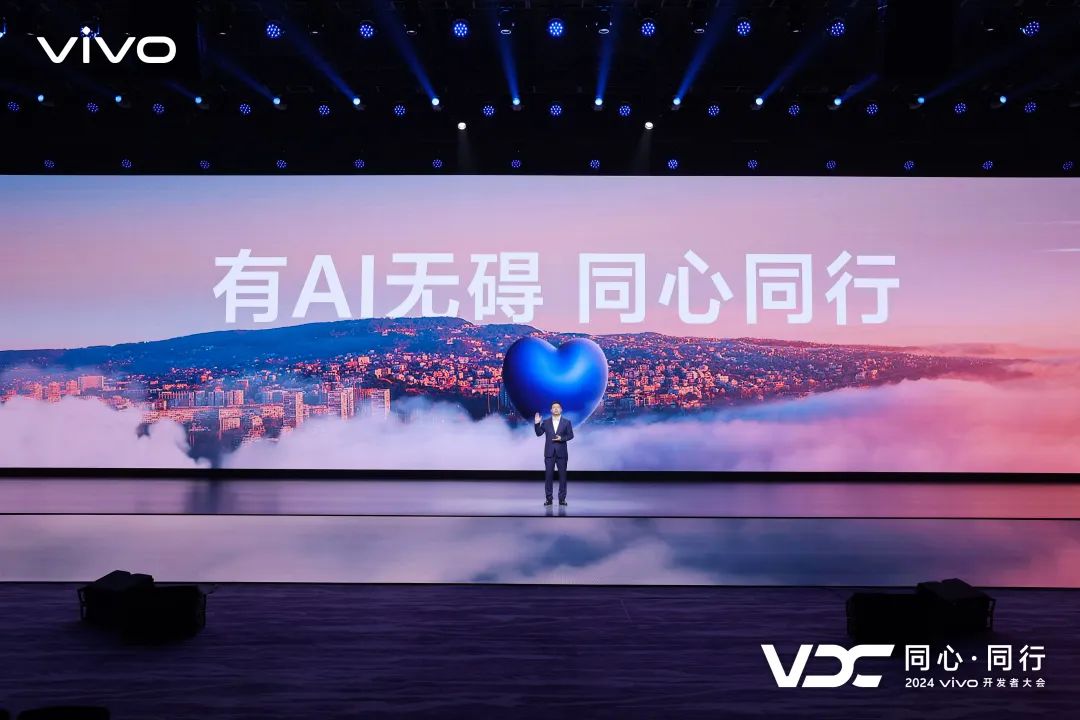
Based on vivo's deep accumulation in this field, the accessibility guidance in the National Accessible Environment Exhibition Hall uses vivo Vision.
03 Return to essential thinking
At present, AI's impact on the mobile phone industry may be disruptive. Therefore, in times of change, it is even more important to understand the essence of the industry and have an essential thinking perspective. Companies that have been immersed in a particular industry for a long time are prone to being blinded by methodology. Nokia didn't do anything wrong, but it still killed its mobile phone business.
The "benfen culture," also known as the "ordinary mind culture," is popular within vivo, which means returning to the essence for thinking. The essence is the "cause" level of things; if these are done well, the "effect" will naturally follow. Zhou Wei said that mobile phones are not mysterious; they are just tools needed for daily work and life. vivo aims to improve the experience and enhance the functionality without creating anything grand or complicated.
To make products more practical, vivo has established a policy of "user-oriented innovation," with the ambition of "what the people need, vivo will create." Only by integrating the four words "user-oriented" into the company's DNA and forming an obsession can vivo create AI functions such as selection and drag-and-drop, truly freeing users' brains and hands.
Specifically in the field of AI, vivo's vision is "intelligent and warm," with intelligence encompassing simplicity, efficiency, and proactivity. This is also reflected in vivo Vision and PhoneGPT, the mobile phone AI agent.
At the same time, vivo is down-to-earth in terms of goal execution. In the 11 months since the explosion of large models last year, major mobile phone manufacturers have scrambled to launch their own large models to seize market share. However, due to the lack of good logical reasoning and lagging experience, the situation has become one of great expectations leading to greater disappointments. In contrast, vivo seemed to have been quiet for a while.
In reality, vivo was making ample preparations. In the first five months, it conducted user research and market surveys to understand what kind of AI mobile phones users wanted, only to find that users and the market were also confused. In the remaining six months, vivo changed its strategy, concluding through innovative methodology that it needed to build a systematic framework and accelerate progress in three directions: empowering traditional product functions with AI, building systematic public capabilities, and creating exemplary AI agents.
Think before you leap, which is also vivo's consistent style.
Reference materials: The Paper: Would you be willing to put an AI large model in your phone? TMTpost: The starting line of AI phones is filled with mediocre manufacturers iFanr: Why did Nokia, once a pioneer of change, drop the ball in connecting the future?
end

